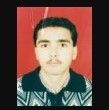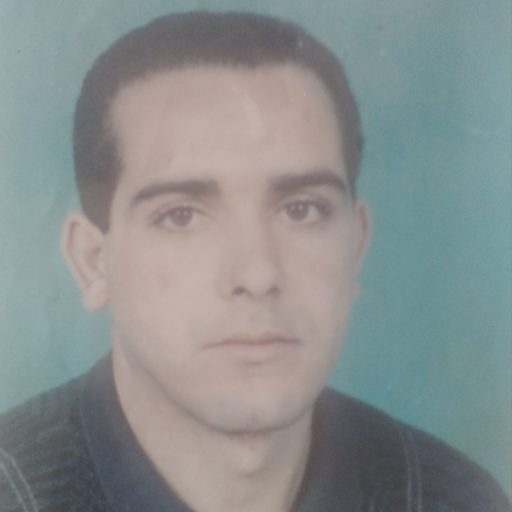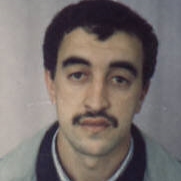
Mohamed Grioua
Date of arrest: 1996-05-16
Forces responsible: National People’s Army
Summary
Mohamed Grioua was arrested at his house, in El Merdja, Baraki district, on May 16, 1996, at around 8 a.m., by members of the National People’s Army, during an extensive search operation led by the “joint forces” (police, gendarmerie and Army). His family was present during the arrest. Mohamed Grioua was neither presented with an arrest warrant, nor informed of the reasons of the arrest. Along with Fouad Boufertella, Mourad Kimouche, and Djamel Chihoub, Mohamed Grioua was then taken to the Ibn Taymia school, Baraki district, requisitioned as command headquarters, for identity checks. His family immediately started to search for his location by asking gendarmes, police and military questions, without obtaining any information. Fouad Boufertella, who was released on the same day of his arrest, informed the family that Mohamed Grioua was held at the Baraki military barracks, where he was probably subject to torture. He remains disappeared since.
Steps taken
June 24, 1996: Mohamed Grioua’s family lodges a complaint with the State Prosecutor at the El Harrach Court (Case No. 849/96).
August 10, 1996: His family lodges a complaint with the prosecutor at the Algiers Court (Case No. 2202/96).
August 28, 1996: His family submits a complaint to the Court Prosecutor at Bir Mourad Rais.
October 21, 1996: The complaint of August 28, 1996, is referred to the Court Prosecutor at El Harrach.
October 29, 1996: The case is dismissed by the El Harrach Court on jurisdictional grounds.
December 30, 1996: His family lodges a new complaint with the State Prosecutor at the El Harrach Court.
January 21, 1997: The Algiers Court prosecutor replies to the case, saying: “I regret to inform you that inquiries into your son’s whereabouts have proved fruitless, but if we locate him, we will inform you forthwith.”
July 2, 1997: The complaint of August 28, 1996 is referred to the gendarmerie of Baraki.
September 17, 1997: The National Observatory on Human Rights replies to the family by stating: “following steps taken by the Observatory and according to information received from Police Headquarters, the individual in question faces proceedings under detention warrant No. 996/96 issued by the examining magistrate.”
November 23, 1997: The examining magistrate at the El Harrach Court dismisses proceedings in cases Nos. 586/97 and 245/97.
April 1, 1998: His family lodges a new complaint with the Prosecutor at the Algiers Court.
April 4, 1998: Case No. 836/98 is transferred to the Algiers Court.
October 19, 1998: The case is submitted to the United Nations Working Group on Enforced or Involuntary Disappearances.
November 11, 1998: The file on the disappearance is lodged with the Office for Families of the Disappeared.
January 27, 1999: The National Observatory on Human Rights informs the family it has “duly contacted the relevant security services. We undertake to forward to you any new information from the inquiry that we may receive”.
June 5, 1999: The National Observatory on Human Rights informs the family that: “following steps taken by the Observatory and on the basis of information received from the security services, we can confirm that the individual in question is wanted by these services and is the subject of arrest warrant No. 996/96 issued by the El Harrach Court, which has territorial jurisdiction.”
June 28, 1999: The examining magistrate at the El Harrach Court dismisses the proceedings (Case No. 854/99).
July 18, 1999: His family lodges an appeal to the Indictments Division of the Algiers Court against the decision of dismissing Case No. 854/99.
August 2, 1999: His family lodges a new complaint with Prosecutor at the Blida military court.
August 17, 1999: The Indictments Division of the Algiers Court rejected the family’s petition on procedural grounds (Case No. 854/99).
January 2, 2001: His family lodges a new complaint with the State Prosecutor at the El Harrach Court.
July 20, 2002: The appeal is forwarded to the Cassation Department of the Algiers Court (Case No. 854/99).
August 4, 2002: The appeal is forwarded to the Supreme Court of Algiers (Case No. 854/99).
October 7, 2004: Having exhausted all the remedies, the family seizes the UN Human Rights Committee.
Decision of the Human Rights Committee
Prohibition of torture and cruel, inhuman and degrading treatment and punishment (including in relation to the author); right to liberty and security of person; arbitrary arrest and detention; respect for the inherent dignity of the human person; right to recognition before the law.
The State party is under the obligation to provide the author with an effective remedy, including a thorough and effective investigation into the disappearance and fate of her son, his immediate release if he is still alive, and the appropriate information emerging from its investigation, and to ensure that the author and her family receive adequate reparation, including in the form of compensation. The Committee considers the State party duty-bound not only to conduct thorough investigations into alleged violations of human rights, particularly enforced disappearances and violations of the right to life, but also to prosecute, try and punish the culprits. Thus, the State party is therefore also under an obligation to prosecute, try and punish those held responsible for such violations. The State party is further required to take measures to prevent similar violations in the future. The Committee reiterates that the State party should not invoke the Charte pour la Paix et la Réconciliation Nationale against individuals who invoke the provisions of the Covenant or have submitted or may submit communications to the Committee.




